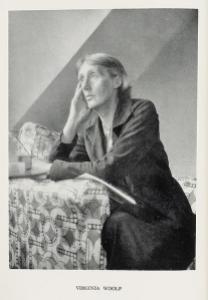by Xochitl-Julisa Bermejo
Does poetry have value? This is a question all poets have asked themselves in the dark of night when they think no one is listening. Shakespeare killed his poets or likened them to lunatics in his plays and Virginia Woolf wrote in A Room of One’s Own, “[The world] does not ask people to write poems and novels and histories; it does not need them. It does not care…Naturally, it will not pay for what it does not want,” so how do we move forward when seemingly no one values our work?
have value? This is a question all poets have asked themselves in the dark of night when they think no one is listening. Shakespeare killed his poets or likened them to lunatics in his plays and Virginia Woolf wrote in A Room of One’s Own, “[The world] does not ask people to write poems and novels and histories; it does not need them. It does not care…Naturally, it will not pay for what it does not want,” so how do we move forward when seemingly no one values our work?
Poet Jessica Piazza, inspired by Dena Rash Guzman’s personal challenge to send her poetry to paying markets in 2015, began the Poetry Has Value project. Here Piazza explores questions about the value of poetry by writing about her experience in submitting to only paying markets, creating a spreadsheet and public resource of Poetry Journals that Pay (which includes submission fees, open reading periods, and average response times), and interviewing editors from these paying journals. Her interview series has most recently included interviews with Kelly Davio, poetry editor of Tahoma Literary Review and Barbara Westwood Diehl, senior founding editor of The Baltimore Review.
Over the last couple of years, I have been working on finding a publisher for my full-length manuscript, and more than once, I have had my guts ripped out from my body and slapped across a table when an editor told me, “We don’t publish poetry anymore. It doesn’t make money.” I questioned the point and value of my work, but thanks to Piazza I now have a place to go to quiet those dark fears.
Besides creating a remarkable resource, one of the best aspects of Piazza’s project is how earnest she is in her journey. As she says in the introduction to her interview with Tim Green, editor of Rattle, “writing these blog posts…has helped me explain more clearly and more precisely my own point of view…which, to be fair, is still developing and always growing.” It’s the exploration that I love, and that she is so open and honest with her findings, makes her worthy of much appreciation.


 have value? This is a question all poets have asked themselves in the dark of night when they think no one is listening. Shakespeare killed his poets or likened them to lunatics in his plays and Virginia Woolf wrote in A Room of One’s Own, “[The world] does not ask people to write poems and novels and histories; it does not need them. It does not care…Naturally, it will not pay for what it does not want,” so how do we move forward when seemingly no one values our work?
have value? This is a question all poets have asked themselves in the dark of night when they think no one is listening. Shakespeare killed his poets or likened them to lunatics in his plays and Virginia Woolf wrote in A Room of One’s Own, “[The world] does not ask people to write poems and novels and histories; it does not need them. It does not care…Naturally, it will not pay for what it does not want,” so how do we move forward when seemingly no one values our work?